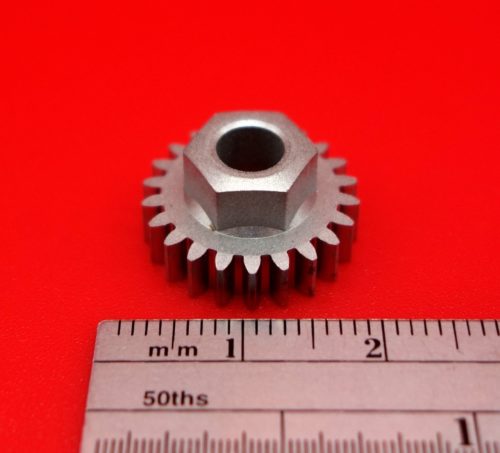Why High Precision Matters for Your Fabricated Components
As electronic devices, medical devices, automobiles, and other products adopt smaller and more complex forms, precision fabricated components become more critical. To fit tight spaces and complex geometries, these miniature components must achieve a level of precision not possible through conventional manufacturing. Today, precision fabrication and manufacturing are the most in-demand sectors of industrial manufacturing.
The Difference Between Manufactured and Fabricated Parts
Fabrication and manufacturing are two industrial terms associated with producing a finished product. Although the two processes are often referred to interchangeably, they describe different types of processes.
Fabrication is a process of constructing products from several standardized parts or subassemblies. A good example is metal fabrication, which forms metal structures through multiple processes, including cutting, bending, and assembling. Oftentimes, fabrication processes utilize computer-aided designs (CAD) and computer numerical control (CNC) technology to achieve these multiple assemblies with greater precision and faster turnaround times.
In contrast, manufacturing involves converting raw materials into finished products. Manufacturing leverages machines, tools, and chemical processing to change materials from their raw form to ready-to-use goods, from start to finish. Examples of industries that perform manufacturing processes are the apparel, chemical processing, electronics, food, leather, printing, and lumber sectors.
Benefits of High Precision
High-precision manufacturing is a subset of manufacturing that specializes in producing parts with tight tolerances, often of just a few micrometers. Usually, the tolerance grade of precision machining is IT5, with an accuracy of 10-0.1 μm and surface roughness not more than 0.1 μm. The following are some of the advantages of high precision manufacturing:
- Reduced turnaround time: High precision manufacturing can significantly improve turnaround times. You can invest in precision machines and skilled technicians to cut down on the number of destinations your products must travel to before final delivery. A contract manufacturer can handle these responsibilities in-house, ensuring you receive high-quality products on time.
- Minimized human error: Because high precision manufacturing utilizes intelligent, accurate machinery, they eliminate the risk of costly human errors. Unlike humans, computers can follow the same set of predefined operations without errors or inconsistencies.
- Easy prototyping: High precision manufacturing can help you produce one-off prototypes to full-scale production runs. This flexibility allows you to test and refine prototypes throughout multiple phases of the production process, and you can adjust to changes in niche markets.
Uses of Fabricated Components

Our powdered metal materials include stainless steel, brass, nickel steel, copper steel, carbon steel, iron, bronze, and more. Specific components we produce include:
- Gearboxes
- Gears
- Medical dispensing devices and diagnostic equipment
- Planetary drives
- Pinions
- Cams
- Sprockets
- Retainers
Custom Miniature Parts from Allied Sinterings, Inc.
Allied Sinterings is a leading manufacturer of small powered metal products, including miniature components for medical equipment. From our ISO 9001:2015 certified facility, we fabricate precision components for the medical, automotive, aerospace, consumer goods, and telecom industries. Contact us today to learn how we can serve you.



